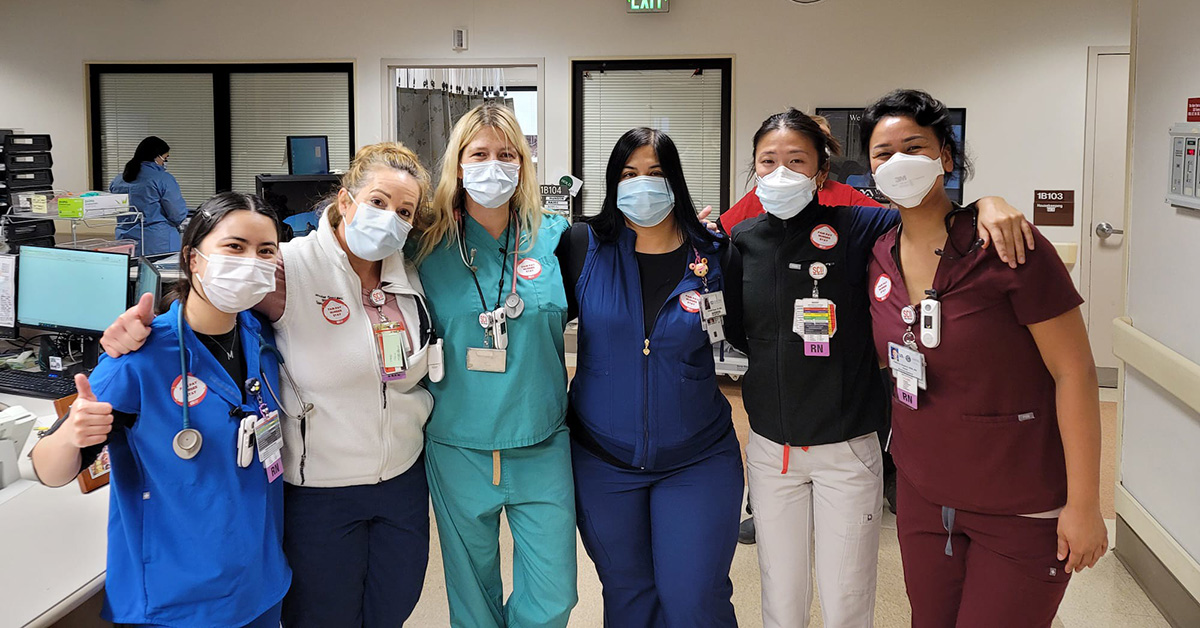Nursing Practice

The Nursing Practice & Patient Advocacy Program is involved in five broad categories of activities:
- Nursing practice issue research, analysis, and resolution.
- Patient advocacy
- Continuing education
- Competency
- Safe patient care
Purpose and Objectives
To advocate for direct-care nurses and patients on all public policy matters related to safe care and nursing practice, including safe nurse-to-patient ratios and patient advocacy rights and duties.
Major nursing practice issues
- Promotion of the registered nurse as the direct-care provider in all health care settings.
- Patient advocacy and the nursing process.
- Empowerment of the PPCs (Professional Performance Committees).
- Encroachment into nursing practice by other licensed and unlicensed health caregivers.
- External forces promoting reallocation of nursing functions.
- Technology and the deskilling of the profession.
- Deregulation through movement of services from inpatient to outpatient and home settings.
- Development and monitoring of staffing ratio language.
- Fragmentation of RN title and work.
- Occupational health hazards for nurses and violence in the workplace.
Nurse to Patient Ratios
Bedside Nurses across the country know mandated nurse to patient ratios are necessary to ensure safe patient care, yet California is still the only state to mandate ratios on all units in acute care hospitals.
Lawfully mandated minimum nurse staffing levels at hospitals in California have been proven to save lives and enhance patient care.
For more on this issue please access our Ratios white paper here.
Ratios legislation supported by NNU
The Nurse Staffing Standards for Hospital Patient Safety and Quality Care Act (S.1709/H.R. 3415)
There are no federal mandates regulating the number of patients a registered nurse can care for at one time in U.S. hospitals. As a result, registered nurses (RNs) are consistently required to care for more patients than is safe, compromising patient care and negatively impacting patient outcomes. These dangerous conditions are causing thousands of RNs to leave the hospital bedside. This legislation would improve patient care and increase nurse retention, by setting mandated, minimum, registered nurse-to-patient staffing ratios.
RNs nationwide are actively working with NNU to win their own mandated direct-care RN-to-patient staffing ratios. RNs in other nations have also been fighting to improve conditions for their patients. Studies show that staffing ratios save lives, yet understaffing is a major issue RNs struggle with every day. Together, we can change that.
Join our ratios coalition here!
Infectious Disease
NNU advocates for nurses to have the education, training, and personal protective equipment they need to be prepared for the next pandemic and effectively perform day-to-day infection control. Infection prevention and control measures must be rooted in the precautionary principle and the most up-to-date science for known and emerging pathogens. Optimal protections are essential in building a safe care environment and in preventing infections among health care workers and patients alike.
For more on this issue please access our infectious disease resources page here.

